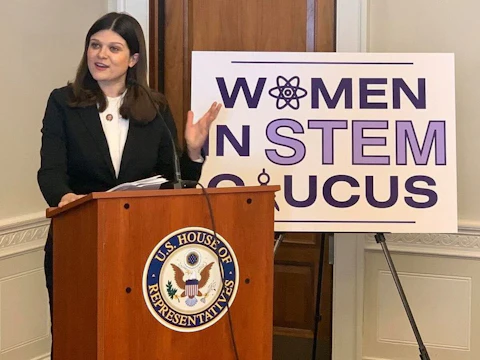The Trump administration’s habit of rolling back Obama-era policies has made it harder for survivors of college sexual misconduct to seek justice.
LANSING, MI — Michigan Attorney General Dana Nessel is suing to prevent new Department of Education rules that would make it harder for survivors of sexual assault on college campuses to seek justice.
These rules, announced in May, come as part of Trump-appointed Education Secretary Betsy DeVos’ rollbacks of several Obama-era protections. This includes rollbacks on rules relating to K-12 school discipline, fraud and abuse from for-profit colleges, and protections for transgender students. In this, DeVos’ tenure as secretary has matched the broader Trump administration goal of erasing any legacy left by his predecessor, as reported by the Washington Post.
RELATED: Betsy DeVos Sends Coronavirus Money to Private Schools, Including One That Says It Is Not a Cult
In this particular case, NPR reported that DeVos issued new Title IX rules that would require federally funded universities to hold live hearings with real-time cross-examination of each student involved in the alleged incident. It would also give those accused the right to appeal and allow schools to raise the evidentiary standard making it harder to find them responsible for misconduct.
“I find it appalling that the Department of Education would spend its time and resources on weakening protections for sexual assault and harassment victims on school campuses here in Michigan and across this nation,” Nessel said. “This is a blatant disregard for the pain and fear victims of sexual assault and harassment face, and discourages reporting of these offenses.”
The Consequences of the Rules
TIME illustrated that the new Title IX rules are exceedingly hard for survivors to make use of. Its report says that’s specifically what they’re designed for. Title IX prevents discrimination on the basis of sex in any educational setting that recieves federal funding, which would include making it harder for survivors of sexual misconduct to seek an education. But the new rules obfuscate the Title IX process and make it harder for a student to seek to use those rights.
The new rules document is 2,033 pages long, compared to the administration’s first pass at such a rule which clocked in at 38. This creates confusion among survivors over what, exactly, their rights are and reduces the likelihood that they avail themselves of the rights at all. And those who do might find that the harms they seek to report are no longer reportable.
Gov. Gretchen Whitmer decided to have Nessel join the lawsuit to block the new rules.
“As a survivor and a mother, it pains me to see how these new rules will water down Title IX protections for our students, which is why Michigan is joining several other states in challenging these new rules,” Gov. Whitmer said in a statement. “These rules will do nothing to change the culture of campus sexual assault and strongly discourages victim disclosure.”
UP NEXT: The War Against Robocalls In Michigan Just Got Real
More than a dozen other states are joining Michigan in the lawsuit against DeVos and the Department of Education: California, Colorado, Delaware, the District of Columbia, Illinois, Massachusetts, Minnesota, New Jersey, New Mexico, North Carolina, Oregon, Pennsylvania, Rhode Island, Vermont, Virginia, Washington, and Wisconsin.
From here, the lawsuit will be heard in the federal district court in Washington, D.C..
How Big of a Problem This Is in Schools
According to Nessel, sexual harassment, assault and other forms of misconduct is rampant in American schools, including in Michigan. In grades 7-12, 56% of girls and 40% of boys are sexually harassed. In college, nearly two-thirds of both men and women will experience sexual harassment, her office said.
Those numbers might not even provide the full picture. The Department of Justice found that among survivors of sexual assault, for instance, 80% of cases went unreported.
Michigan is home to 15 state-funded universities, 28 public community colleges, 836 public school districts, and 56 intermediate school districts.
Reporting assaults to schools is not a replacement for official criminal reporting at police departments but a parallel process, says advocacy group Know Your IX. Schools receiving federal money have a responsibility to provide a safe environment from K-12 through post-doctorate programs so students have equal access to education, Nessel said. That includes a responsibility to take action against sexual misconduct.
RELATED: Coming of Age in a Pandemic: ‘This Is My Generation’s WW1’
“The fact of the matter is this: the final rule will make educational institutions less safe and diminish their ability to promptly deter, stop and prevent sexual harassment and violence,” Nessel said.
She believes these changes will make it less likely that survivors come forward, she said.
The Guardian reported that the rule could shield colleges from liability faced from knowingly allowing or even covering up instances of sexual misconduct.





